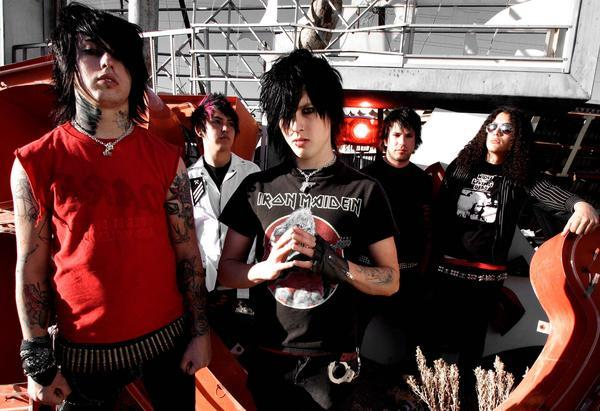The former guard, who struggled with his shooting through the first half of the season, had been treated for cancer after a random drug test last year tipped off school officials he had a tumor.
Lofton told reporters the testicular cancer was the hardest thing that he's ever gone through and didn't want it to overshadow his teammates during what turned out to be a history-making season for the Vols.
The only teammate Lofton told was fellow senior guard Jordan Howell, and that was late in the season, according to ESPN.com.
He decided to reveal what he went through once he realized it might help other people.
"Sometimes I wanted to tell all my teammates, but I just couldn't get it out to them," Lofton said Friday before the team's end-of-season banquet. "I thought keeping it to myself for the whole season and waiting until after the season to say it would be better."
Beating cancer was the hardest thing the Maysville, Ky., native has ever gone through, but it's certainly changed him.
For one thing, Lofton - who admits he's a man of few words and often shies from the media as a player - doesn't seem to struggle to talk about the treatments which weakened him so much last summer that he didn't work out or shoot a basketball until just weeks before the season started.
It's also put basketball in perspective for the shooter whose 431 3-point shots lead the SEC and rank third in NCAA history.
"It used to be that a bad game was the end of the road for me. When I went through my cancer, I realized basketball is fun but it's not that big of a deal," Lofton said.
A drug test he was randomly selected for during the 2007 NCAA tournament indicated potential steroid use or cancer.
Coach Bruce Pearl said NCAA officials believed something was genuinely wrong with Lofton rather than accusing him of steroid use and allowed him to play through the tournament.
Tennessee officials didn't tell him and his family of the test results until hours after the Vols lost to Ohio State in the NCAA regional semifinal.
He underwent surgery March 28, six days after the loss, and began a month of radiation treatments a few weeks later.
Lofton, The Associated Press' SEC player of the year as a junior and a second-team All-American, usually was the first one in the gym to take shots before practice, and he would stay late for more work. But there were days during the summer when he couldn't even get out of bed because of the nausea and pain from radiation treatment - something he didn't expect.
He was a preseason All-American going into his senior season but started off in a shooting slump.
Pearl gave several reasons for Lofton's slump during the season: His shot wasn't falling, the team had more offensive balance than before, Lofton was contributing in other ways.
Pearl says now that everything he said was true, but he always knew that part of the reason could be that Lofton wasn't 100 percent physically or mentally. He just couldn't tell anyone that.
"Chris didn't want it to be a distraction to his teammates, therefore he didn't tell his teammates," Pearl said. "And he certainly didn't want an excuse if he wasn't playing quite as well as the year before."
The questions about Lofton's play from fans and reporters certainly bothered the senior, Pearl said.
The team finally got to a point about halfway through the season where Pearl knew Lofton needed to take more shots and find better ways to get open. So he told Lofton he needed more to keep the team from losing and immediately saw a difference.
"You push the team button with Chris Lofton, and everything else is a moot point. He was then able to push everything else aside," he said.
He finished the season leading Tennessee in scoring with 15.5 points per game, though it was a drop from his 20.8 average the previous season. He was picked as a third-team All-American.
Pearl said he's fielded a number of calls and e-mails from fellow coaches, fans and cancer survivors telling him what an inspiration Lofton is.
"I've never coached a player who's faced so much adversity and put it aside," Pearl said.
"Chris is rare."
Vikings' Otis Grigsby Posts YouTube Video: 'Illinois State Police Murdered My Uncle'
Last week a Stateville correctional officer named Lernard Grigsby was shot by an Illinois State Police officer. On Monday he was pronounced dead at Provena St. Joseph Medical Center. His nephew, Minnesota Vikings defensive end Otis Grigsby, considers his uncle's death a murder, and he looks straight into the camera and explains in the video.
According to the Chicago Tribune, police responded to a domestic disturbance call in an employee dormitory at Stateville Correctional Center at about 4 a.m. on Thursday. Police said that when they found the woman who made the call, Lernard Grigsby attacked them. A sergeant shot Grigsby in the abdomen.
Otis Grigsby calls that article "amazingly flawed and ridiculous, and it shows that basically, these people don't earn their paychecks, because if they did, they would have actually asked questions, besides reading a bogus police report."
Says Otis of his uncle, "He defended himself like any person would. No person is going to sit there and take a beating." And for nine minutes, he talks about his uncle's death in a video that raises many questions, provides few answers and won't be easy to forget.






















No comments:
Post a Comment